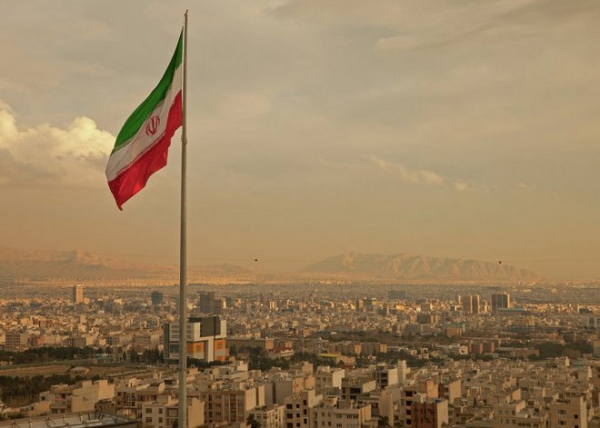Baku, Azerbaijan, Oct. 29
By Umid Niayesh - Trend:
The Syrian conflict has allowed Iran to develop contacts beyond the region, Edward Haley, a US international affairs expert said.
He made the remarks while responding to a question about unknown advantages of the IRGC's presence in Syria's battleground for the Islamic Republic.
Haley also believes that the Islamic Revolution Guards Corps (IRGC) gains combat experience via involvement in the Syrian conflict that is precious at all military and paramilitary levels.
"In addition, the Syrian conflict has allowed Iran to develop contacts and links outside the region especially with Russia and among Shiite communities in other countries, such as Pakistan and Afghanistan," Haley, who is W.M. Keck Foundation Professor of International Strategic Studies (emeritus) at Claremont McKenna College, told Trend Oct. 29.
However, the political and military situation in Syria is unique because the central government lost control of most of the population and huge amounts of territory and the degree of government collapse in Syria does not exist elsewhere at present in countries with large Shia populations, the expert added.
He further touched upon the recent statements of Hossein Salami, the IRGC deputy Commander that supporting the Syrian government and army has strategic importance for Iran while Iranian military advisors teach high and middle-ranking Syrian officers and provide consultation to Syrian army.
"Salami's comments are true. He and other Iranian officials are very clear, for example, that Iran regards the maintenance of a friendly government in Syria as a vital national interest and is prepared to take whatever steps are necessary to assure its survival."
However, Salami leaves out much of importance, Haley said, underlining that in addition to the four kinds of assistance he describes-international support, military schooling and military training and the provision of Iranian IRGC combat advisers- one of the most important kinds of Iran's military assistance has been to organize and train local and foreign volunteers.
"The Islamic Republic has a decisive role in organizing and training the volunteers including foreigners who come from Iraq, Afghanistan, and Pakistan, into militia forces to supplement Syrian regular army forces and the fighters from Hezbollah who have been taking part in battles in and around Homs and Latakia, areas of great strategic importance to the Bashar al-Assad regime."
In this sense, Iran's strategy in Syria resembles that of the "Islamic State" (IS, aka ISIL, ISIS or Daesh) in Iraq and Syria -the recruitment of fighters based on religion without regard for their countries of origin, Haley underlined.
Responding to a question about Iran's intensified casualties in Syria in recent days, he said that the rise in casualties among Iran's IRGC fighters results from the increased scale and pace of fighting and, probably, from efforts by rebel groups to target them.
Iranian semi-official news agencies announced that the IRGC has lost at least 20 members in Syria in the last week. The IRGC officials explain the greater numbers of casualties correlates with an increased presence in Syria in terms of "quantity and quality" in recent days.
While commenting on the role of the Shiite militia in Syria's future, Haley said that Bashar al-Assad is riding a tiger-the tiger of Iranian influence in his country, especially in its Shiite militia form.
"He has no choice if he is to survive. The problem is inherent in the old saying: "He who rides a tiger is afraid to dismount."
"As the militia forces grow and their links to Iran become stronger and stronger, the danger and, perhaps, impossibility of escaping from them grows as well."
It should be noted that the IRGC commanders confirm Tehran's decisive role in organizing Syrian pro-government militia, putting the number of the forces at some 100,000.
Edited by CN
Follow the author on Twitter: @UmidNiayesh






